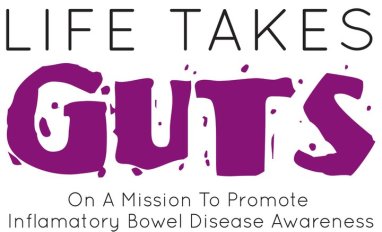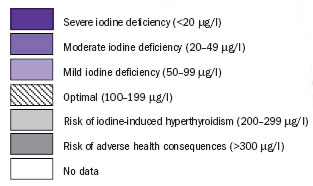 Acute inflammations like colds, flus and fevers seem to be an inescapable part of life; everyone experiences them. Why do we get them? Many of us have noticed (if not, than our spouses have noticed) that we often come down with a cold or flue when we’re overly dis-stressed or depleted.
Acute inflammations like colds, flus and fevers seem to be an inescapable part of life; everyone experiences them. Why do we get them? Many of us have noticed (if not, than our spouses have noticed) that we often come down with a cold or flue when we’re overly dis-stressed or depleted.
If you follow my online weekly radio shows (drhenry.com) you know that the word ‘stress’ has been used incorrectly – let me explain, in case you’re new to blogs.
Stress is a motivator – a good thing
Dis-stress brings on illness, pain, disease and often early death!
We explain this by assuming that dis-stress lowers our resistance to the viruses and bacteria that, we believe, like to attack us and make us sick. Most of the time we peacefully co-exist with these microbes which are everywhere and share our environment, and if we get sick it’s often because we’ve allowed ourselves to get out of balance. This applies to children too, but only partially.
 In children, studies have shown that respiratory infections increase in frequency from birth until a peak by age 6 followed by a sharp decline after age 7, irrespective of treatment. In other words, it seems to be a normal feature of childhood to experience a variety of acute inflammation, especially respiratory, in the first 7-years of life.
In children, studies have shown that respiratory infections increase in frequency from birth until a peak by age 6 followed by a sharp decline after age 7, irrespective of treatment. In other words, it seems to be a normal feature of childhood to experience a variety of acute inflammation, especially respiratory, in the first 7-years of life.
Prior to the advent of 20th century improvements in sanitation and living standards, children had a high death rate in their first 7 years from these acute inflammations: measles, scarlet fever, diphtheria, whooping cough and the common unnamed pneumonia’s and diarrheas.
These have been the greatest threats to children throughout history, and still are in developing countries.
In all modern nations children’s deaths from such acute inflammations have been steeply declining ever since 1900, and over 90% of the decline occurred before the advent of antibiotics and vaccinations. Polio is an important exception to this pattern.
Just before 1900, when all the other familiar life-threatening children’s illnesses were beginning to decline, the newcomer polio made its first appearance in medical history and continued to grow in importance until its abrupt decline with the advent of the Salk and Sabin polio vaccines in the 1950’s.
In the U.S. today what used to be the common dangerous infections of childhood only account for about 1% of children’s deaths. In contrast to this, 7% of deaths in U.S. children aged 1-19 are from cancer, 7% are from suicide and a shocking 14% are from homicide.
 Since 1960 there has been a sharp increase in both the frequency and the severity of asthma in many developed nations. In the U.S. asthma accounts for 1% of children’s deaths – equal to infections – and is a leading cause of childhood disability.
Since 1960 there has been a sharp increase in both the frequency and the severity of asthma in many developed nations. In the U.S. asthma accounts for 1% of children’s deaths – equal to infections – and is a leading cause of childhood disability.
A growing body of medical research supports the commonsense idea that children who experience frequent infections and inflammations in early childhood will strengthen their immune systems and will be less prone to allergies and asthma then children who rarely experience such infections.
The idea is called “the hygiene hypothesis”. Research has revealed a list of factors which correlate with a decreased risk of asthma and allergies, including the avoidance of vaccinations and antibiotics and the blessings of growing up in a large family and having farm animals.
If the hygiene hypothesis proves to be correct, it will have a revolutionary impact on medical practice. We will realize that when children experience their cold and fevers, they’re challenging their immune systems and developing an inner strength which will be theirs throughout life.
 As with all challenges in childhood, our job as parents and healthcare workers will be to strengthen the child to meet its challenges but not to remove the challenges altogether. In any case, it’s not possible in the long run to eliminate challenges, but only to replace some kinds of challenges with other kinds.
As with all challenges in childhood, our job as parents and healthcare workers will be to strengthen the child to meet its challenges but not to remove the challenges altogether. In any case, it’s not possible in the long run to eliminate challenges, but only to replace some kinds of challenges with other kinds.
The blessing of modern medicine is that it has the tools and techniques to ease suffering and save lives when we or our children are in danger of being overwhelmed by illness.
Nevertheless, thwarting or suppressing illness does not automatically create health, though it does grant us or our children the respite to return to health thanks to our body’s natural tendency to heal and to restore balance.
Health and healing are mostly about developing our inner capacities to adapt to change and to maintain balance as we move through life’s journey.
To truly foster the overall health and inner strength of our children, we need to go beyond the short-sighted view of illnesses as hostile aggressors and of children as helpless victims. Children are individuals. Each child gets ill in his or her own individual way, and each illness a child gets has a meaningful part to play among the challenges belonging to that child’s life.
Just like everything else in nature, individual illnesses exist within a larger context of a balances system. There is an ecology of human illness. If we attempt to eliminate a single element of am ecological system, we disturb the balance of the whole in ways which can lead to unforeseen consequences.
To these unforeseen consequences belong the dramatic increases in asthma, allergies, diabetes, autism, overweight, obesity and learning dysfunctions occurring in children today. These result, in part, from modern medicine’s failure to appreciate where the balance lies in health and illness, and from its failure to grasp that when you push down on one side of the balance, the other side goes up!
Our present effort to eradicate acute infectious diseases in children through increasing numbers of vaccines has already long overshot the healthy balance point, and is now helping to create in developed nations more chronic disease and disability in children than ever before.
 To improve public health, health policy needs to shift it’s focus from eradicating particular diseases to improving the social conditions which breed disease, and physicians need to learn how to help individual patients maintain balance in body, soul and spirit throughout their lives.
To improve public health, health policy needs to shift it’s focus from eradicating particular diseases to improving the social conditions which breed disease, and physicians need to learn how to help individual patients maintain balance in body, soul and spirit throughout their lives.
If we, as health care practitioners learn that, and if we apply it to ourselves as well, then the overall health of our society cannot help but improve. I know some are reading this and saying – Dr. Henry, you are so idealistic. I know, but I believe if each of us start to take a good look at just our own lives and that of our family, we can start to make a difference, little by little. I see the changes every day in my practice when I start to teach my patients better shopping and cooking methods, little by little they get excited and everyone in their family benefits – how great is that?
How can you continue to feed your children chemicals, toxins, pesticides, poor water, etc. and expect them to be and stay well. Look around today at your family health issues – perhaps it’s not too late to change things around in your home. Your kids deserve to live a full, healthy, happy life, not become another prescription drug addict!
Dr. Rhonda
Do start to –
Plan for Tomorrow’s Good Health – TODAY!
Website:
Email inquiries:
Las Vegas Office: 702-269-8120







 In addition to the development of multiple allergies, many other health conditions can also be attributed to molds and mold spores, both in children and adults.
In addition to the development of multiple allergies, many other health conditions can also be attributed to molds and mold spores, both in children and adults. At a 2003 environmental medicine symposium in Dallas, studies of more than 1,600 patients suffering health issues related to fungal exposure were presented.
At a 2003 environmental medicine symposium in Dallas, studies of more than 1,600 patients suffering health issues related to fungal exposure were presented. Along with obvious places such as shower stalls, air conditioners and damp basements, there can be many hidden sources of mold in your home. Particularly if you have had plumbing problems or leaks in your roof, mold may grow and release spores from places such as drywall, carpet or padding, even wood.
Along with obvious places such as shower stalls, air conditioners and damp basements, there can be many hidden sources of mold in your home. Particularly if you have had plumbing problems or leaks in your roof, mold may grow and release spores from places such as drywall, carpet or padding, even wood.






 Well I could go on and on, but I don’t want to just give you a blog/newsletter and try to selling a 6-month supply of supplements – not my style. What I want each and every person to do is to STOP, buying products that you don’t know if you really need them, what you need to take with them, what foods may interact with them, and how much to take for your specific weight, etc.
Well I could go on and on, but I don’t want to just give you a blog/newsletter and try to selling a 6-month supply of supplements – not my style. What I want each and every person to do is to STOP, buying products that you don’t know if you really need them, what you need to take with them, what foods may interact with them, and how much to take for your specific weight, etc.





















You must be logged in to post a comment.